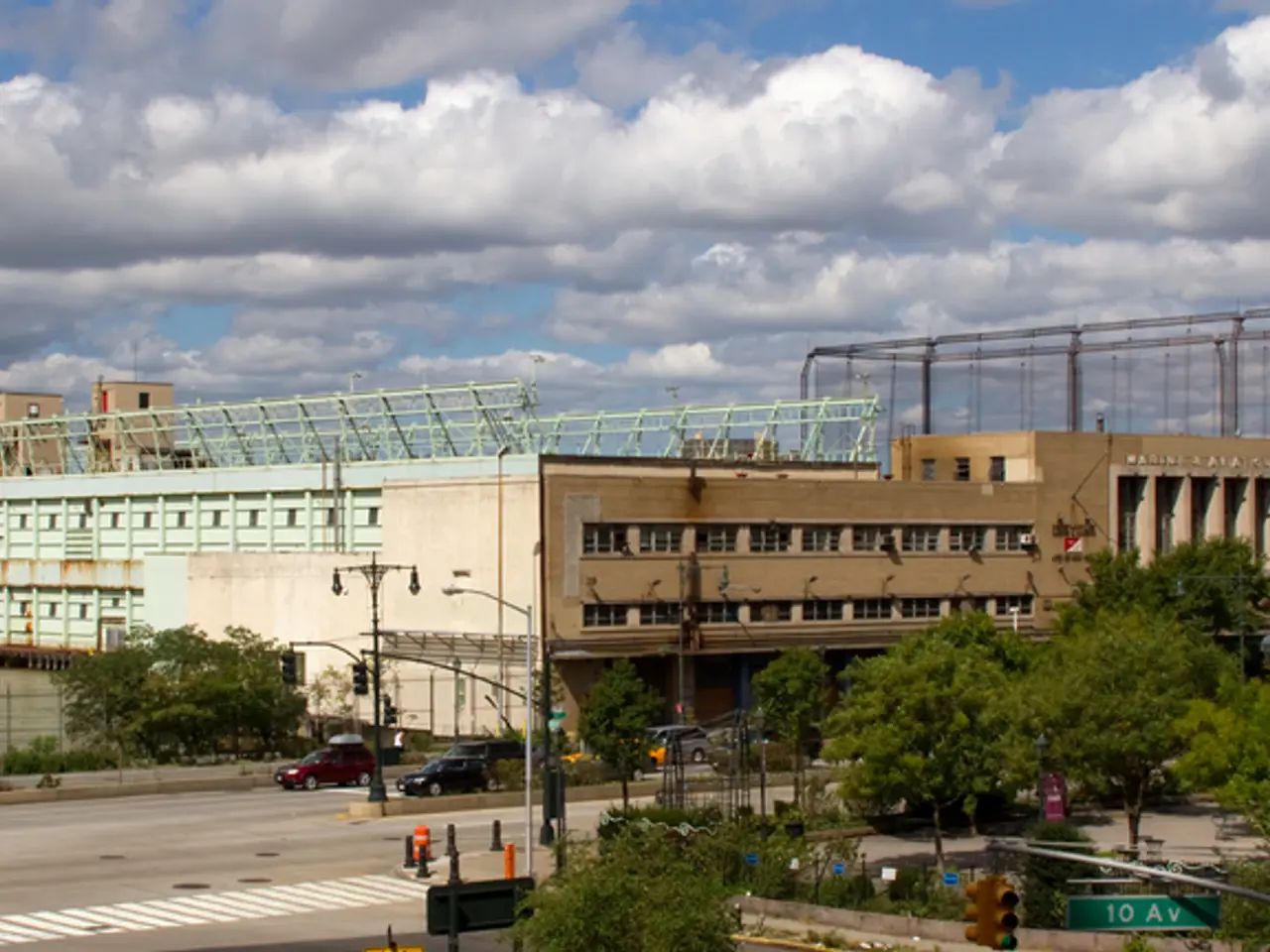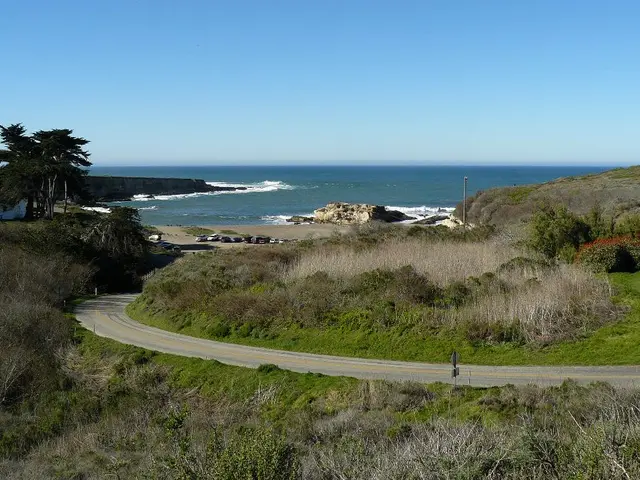Rapid expansion of AI infrastructure presents Meta with enduring ecological challenges
In the ever-evolving digital landscape, Meta, the parent company of Facebook and Instagram, is making strides in its sustainability efforts. However, the company's strategic approach to sustainability investments presents potential conflicts between revenue optimization and environmental goals.
Meta is leveraging artificial intelligence (AI) to drive its sustainability initiatives, with real-time server fleet utilization metrics playing a crucial role in optimizing embodied carbon management. This approach is part of Meta's RETINAS initiative, which aims to improve the efficiency of its operations and reduce its carbon footprint.
However, Meta's transition to liquid cooling systems for AI workloads has raised concerns about unprecedented water demands. Each facility requires hundreds of thousands of gallons daily, a demand that could strain water resources. To address this, digital twin models of data center cooling systems are being developed to generate accurate water usage estimates under current and projected operating conditions.
Meta's sustainability efforts extend beyond its own operations. The company's Net Zero Supplier Engagement Program, which expanded to 183 suppliers in 2024, represents over half of supplier-contributed emissions. This initiative aims to encourage suppliers to adopt sustainable practices and reduce their carbon footprint.
The company's commitment to sustainability is reflected in its financial performance. Meta generates over $164 billion in revenue annually, with 98% coming from advertising. In Q4 2024, advertising revenue was $46.8 billion, representing a 21% year-over-year growth.
Despite these successes, Meta faces challenges in its sustainability journey. The announcement of the Prometheus and Hyperion data center clusters in July 2025 threatens to reverse these gains, with the energy consumption equivalent to 4-5 million American homes annually.
Meta is not backing down from these challenges. The company has reported progress in reducing water use intensity in its data centers by improving cooling efficiency and using recycled water. Meta aims to achieve net zero emissions across its value chain and become water positive by 2030.
Moreover, Meta has contracted over 15 gigawatts of new clean energy globally and has achieved LEED Volume pre-certification for its prototype data center design. The company has also reduced emissions by 23.8 million metric tons of CO2 equivalent since 2021 through clean energy procurement.
Meta is also addressing climate risks through its climate risk assessment, which includes both physical and transition risks. Physical risks include extreme weather events affecting data center operations, particularly in the US. To mitigate these risks, Meta has deployed over 100 climate resilience measures, including updated emergency response playbooks incorporating climate projections.
Meta is also participating in climate resilience frameworks through partnerships with the Center for Climate and Energy Solutions and the World Business Council for Sustainable Development.
In a significant step towards sustainable construction, Meta has erected its first mass timber administrative building in Aiken, South Carolina in 2025. This building reduces embodied carbon by approximately 41% compared to traditional materials.
Meta's Open Catalyst research aims to enable screening of millions of catalyst combinations annually for renewable energy storage through AI-powered materials science. The company is also developing AI-optimized concrete formulas achieving 40% carbon reduction while maintaining superior performance.
Meta's 2025 Sustainability Report outlines a comprehensive approach to sustainability, reflecting the company's commitment to balancing its financial goals with its environmental responsibilities. The company aims to reduce Scope 1 and 2 emissions by 42% by 2031 from a 2021 baseline.
In conclusion, Meta's sustainability journey is marked by a balance between revenue optimization and environmental goals. The company is making significant strides in leveraging AI for operational improvements, reducing water use, and transitioning to clean energy. However, challenges remain, particularly in the areas of water demand and energy consumption. Meta's commitment to sustainability is evident in its ongoing efforts to address these challenges and achieve its ambitious sustainability goals.
Read also:
- Increase in Electric Vehicle Charging Stations Across U.S., But Is It Sufficient?
- Tesla's Semi-Truck enters partnership with Uber Freight, aiming to accelerate the usage of electric trucks.
- The current status of green hydrogen for developing countries following the wave of hype: Assessment of remains
- Rapid Growth in Bio-based Polypropylene Sector Anticipated at a Compound Annual Growth Rate of 26.5% by 2034








